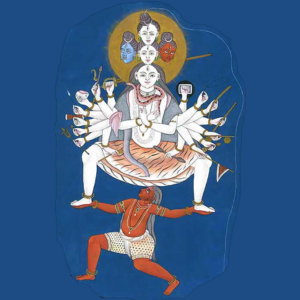A word signifies an object only conditionally.
Greek philosophers invented paradoxes to emphasize relativity of the meanings of words.
“Will you be able to recognize your father? Yes! Will you recognize your father in one of these (covered) people? No. So you can’t recognize your father.”
This paradox is easily resolved when we notice that the questioner and the respondent understand the word “to recognize” differently (“to recognize by seeing close to the face”, “to recognize by silhouette”)
In India, two cultures arose that showed the relativity of the meanings of words – nirkuti and traditional grammar
Nirukti expanded the boundaries of words by associating their morphemes with mythology. Traditional Indian grammar was looking for answers to the question “what does a word consist of and where are its atoms?”
It carefully looked at the root and suffix of a word and looked for the formulas according to which the meaning of the word arose from its morphemes.
We, who are far from the Greeks and Sanskrit, have not acquired the habit of playing with paradoxes or focusing on the meanings of morphemes. But we acquired the translation.
When translating a word, we transfer it from one culture to another, at this moment you can notice how the fabric of reality cracks and the light of new meanings gets in through those cracks.
One of the words that became clearer for me in translation — the verb “to carry”. In Russian and Ukrainian cultures, “carrying” is connected with undesired and unpleasant weight. In Sanskrit, the same verb means “to carry” and “to lead”, without any smack of unpleasant heaviness. In Sanskrit, one can lead and carry only as if it were impossible to do something beyond one’s own strength. Nice feeling, isn’t it?
Attention to words, their detailed consideration exists in yoga — in practices of developing visuddha and ajna-chakra. Within those practices we look closely at words, doing dhyana-meditation, searching for the places where the boundaries of the words match the boundaries of the world.
And then… fearlessness to destroy what limits you allows you to build new boundaries – at your own will.
Picture – Bhairava Svacchanda in the guise of one’s own will.

